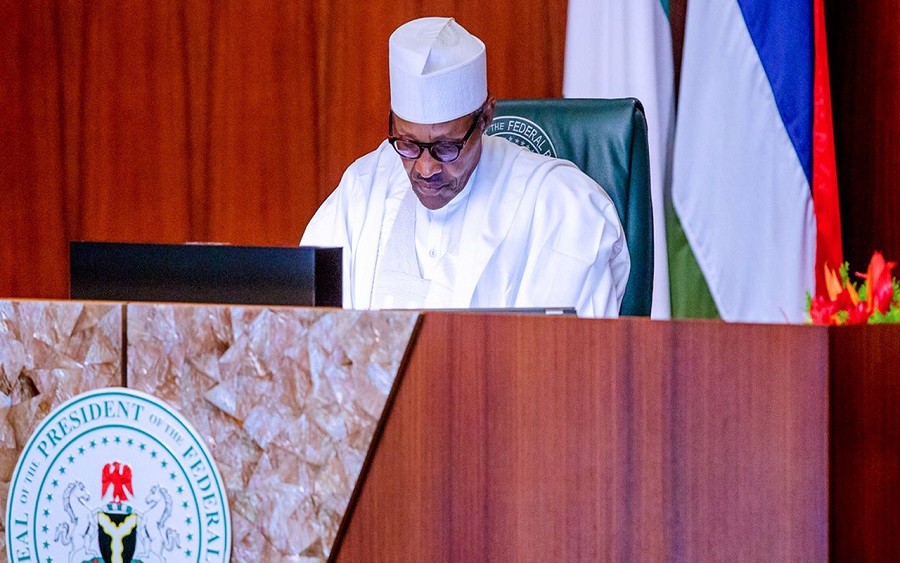In a not too distant past, many news media organizations published articles on the plan by the Federal Government of Nigeria to borrow a whopping N2 trillion from the pension funds.
The need for borrowing, according to the articles, is to finance infrastructural developments in Nigeria. While some saw it as a step in the right direction, many others, like the Nigeria Employers’ Consultative Association, NECA, saw it as “a threat to the Contributory Pension Scheme.”
According to NECA, “It is unthinkable for Government to borrow from the Pension Fund when the citizens have not felt the impact of the mounting debt of Government at all levels.
“What is paramount to contributors, and other stakeholders alike, is the safety of the Fund, which, unfortunately, Government cannot guarantee. The action of Government has the potential to threaten the Scheme and erode Contributors’ confidence.”

Though the discontent about the plan to borrow from the pension funds is not out of place, it comes at a time when Federal Government borrowing from pension funds is not new.
The Federal Government of Nigeria, directly or indirectly, has been borrowing from pension funds. When pension funds buy Federal Government-issued bonds, the pension funds, are by implications, lending money to the bond issuer, which happens to be the Federal Government.
What is a bond?
A bond is a loan contract issued by the bond issuer (the borrower) to the bond purchaser (the lender) promising to return the money at the bond’s maturity and promising to pay interim interests on the borrowed money.
Given the shortage of investible financial instruments in Nigeria and the regulatory impediments that compel pension funds to invest in liquid and less risky financial instruments, it is almost a sine qua non, or self-evident, that the pension funds in Nigeria will invest in Federal Government-issued bonds.
In the first place, such investments are almost risk-free given that the FGN bonds have the backing of the Federal Government of Nigeria and the fact that such bonds offer interest rates that are scarcely obtainable elsewhere.
How much was borrowed in 2019
The Nigerian Pension Fund asset is worth N10 trillion, according to the December 2019 edition of Pension Fund Asset Summary report released by the National Pension Commission, PenCom. Out of that N10 trillion, about N7 trillion is invested in Federal Government-issued securities, comprising N5.3 trillion in FGN Bonds and N1.9 trillion in FGN Treasury Bills.
In 2019 alone, pension funds lent to the Federal Government, by way of investment in FGN issued financial instruments, amounted to about N1.6 trillion, with N1.04 trillion going to FGN bonds while N0.62 trillion went to Treasury Bills.
In fairness to those frowning at the increased “borrowing” by the Federal Government from pension funds, compared to 2018, Federal Government borrowing from pension funds increased by about tN200 billion.
[READ MORE: Infrastructure: Tapping into pension fund – a step in the right direction?)
Judicious use of funds
There is hardly any government that does not engage in borrowing to finance its developmental initiatives unless you are in an Idi Amin type of government where money is supposed to be printed with ease.
By and large, it is the economy and the people that suffer from such fiscal profligacy by way of inflation and other economic woes. The US government is neck-deep in debt even as the Americans are, as a people, yet from time to time, the US congress raises the debt ceiling to keep the government afloat.
Therefore, borrowing is not all that bad, especially domestic borrowing where the interest rate gets paid and channelled back to the economy with its multiplier effect. What is bad about borrowing and that is what I would like such organizations like NECA to hammer on, is the judicious use of the borrowed money.
Nigeria is in need of infrastructural developments that can be of great help towards economic development. Many Nigerian roads are impassable, the traffic deadlocks that hamper movement calls for alternative modes of transportation, like the railroad system which is almost non-existent in Nigeria.
Electricity supply, a must-have for economic development, is in limited in Nigeria, calling for attention. Writing about the developmental need of Nigeria is a topic that will cover pages, not the topic of this piece. Suffice it to say, however, that in as much as the Federal Government borrows from pension funds, they should invest such money judiciously, derive the desired results and payback as at when contracted and agreed.

Lack of investment opportunities
Even the pension fund managers will be glad that the Federal Government is in a position to create investment opportunities for them because, as noted already, there are little or no alternatives open to them to invest the contributions being made by the Nigerian workers.
The equity market has been anything but stellar, the international market is a no-go area for the pension funds due to the regulations governing pension fund investments in Nigeria, and corporate bonds are almost nonexistent in Nigeria.
At the current low-interest-rate in Nigeria, which is in the middle single-digit, at best, I wonder how the pension fund managers will be able to make out any positive performance in 2020. I will let you know how they perform when we get there. Stay tuned.




















Thank you for this analysis, my question is why can’t we also borrow from our own money to fund personal project. Case study I have huge amount of Funds in my pension account but can’t access it and I’m still far from retirement. I try to balance it , why Government can come borrow my money but I can’t because I’m still working. My submission is a review where the contributor can access his/her funds while still working and alive. Regards.
No one should borrow from it becauseasy that will defeat the purpose of setting the program up in the first place.
Thanks for the analysis. Yes governments across the world borrow to finance infrastructure projects, the US government a key example. However the US government not only ensures judicious use of funds borrowed, it also ensures that such funds go into projects for which “Cost Recovery” is key to their conception and implementation. That is the Achilles heel of government borrowing to finance infrastructure projects in Nigeria. Are our public institutions strong enough to ensure cost recovery on infrastructure projects? Do we have governance intelligence positive enough to ensure public project cost recovery? Take a cue from the gate of the the success of the effort to recover cost on the Lagos – Epe Express Way project and the current experience of the Abuja -Kaduna rail project where yours have take over the ticketing system. For me, workers life savings must be lent only into projects with sound and resilient COST RECOVERY mechanisms, not just judicious use of the funds.